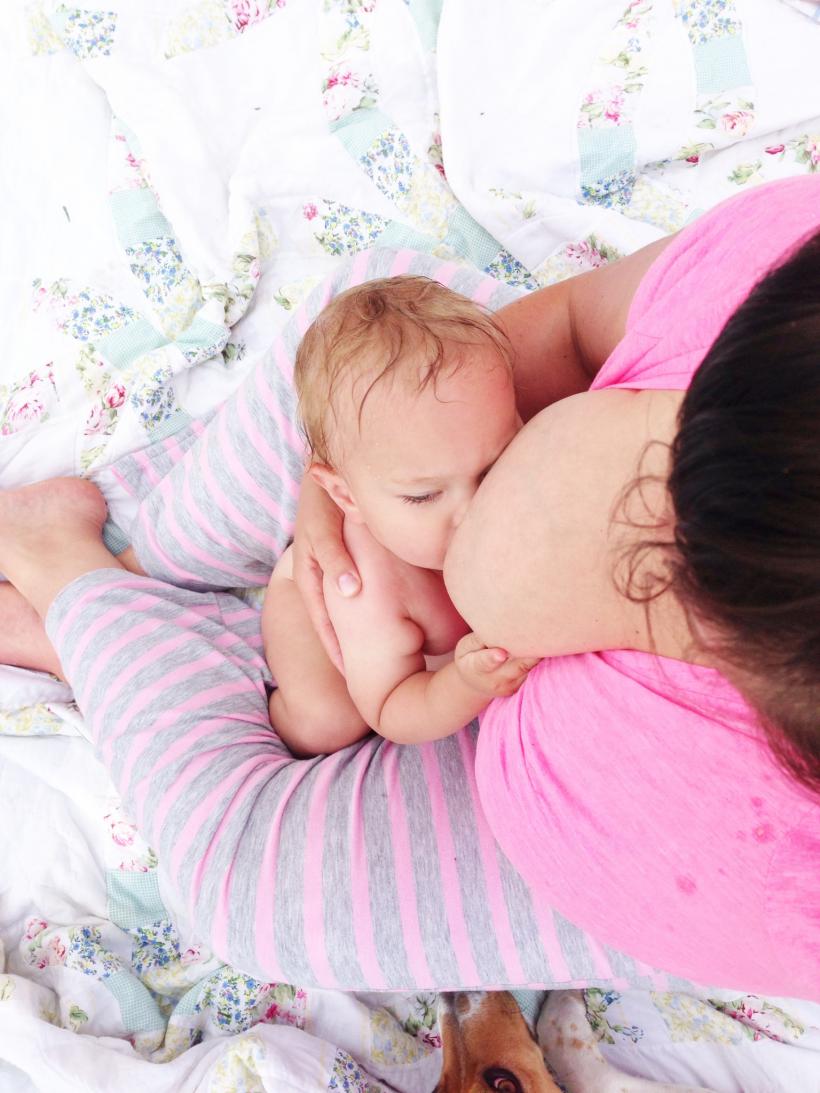
We need a Black Breastfeeding Week and Women Who HaTo Go Back To Work At One Month Postpartum Because We Don't Offer Adequate Leave Week.
It's World Breastfeeding Week, a time for nursing moms everywhere to post their favorite photos, their stories of success, struggle, failure. It's a week to remind Instagram that we should not be censored for showing a nipple. And it's inevitably a week for angry formula feeders to demand equal representation.
Representation I would argue that we do not need. Bear with me, I'm not trying to piss you off.
I have never even tried to calculate it, but I bet I've produced thousands of gallons of milk in my adult life. I breastfed all five of my children exclusively. I pumped for other people's babies. There were many years I referred to myself as a cow.
You Might Also Like: Did You "Fail" At Breastfeeding? It Might Have Contributed To Your Postpartum Depression
My mother did not breastfeed my sister or me. When I had my first baby at age 20, I didn't know anyone who had breastfed — or at least not openly. I was determined to succeed, and I did.
The second baby was more of a challenge, a sleepy baby with a lousy latch. I called an IBCLC and spent my last $40 on an hour consult. My determination was partly a desire to do better than my own mother (at everything), partly to prove to everyone around me that a young woman can still be a good mother, and partly due to stubbornness. For the most part, I was lucky.
Many mothers are not so lucky.
Plenty of women never manage to nurse outside the initial hospital nurse-assisted latch. Or they do go home nursing but quit because their nipple cracks or they think they don't have enough milk. Many women don't have adequate support at home from partners or women who have nursed before them. They don't have the financial resources to get help. They have to go back to work so quickly after birth that they can't establish a good nursing relationship.
From my article on the recent shitshow that is our President:
Black mothers have the lowest rate of breastfeeding initiation and duration. The Centers for Disease Control and Prevention (CDC) noted that from 2011 to 2015, the percentage of women who initiated breastfeeding was 64.3 percent for Black women, 81.5 percent for white women, and 81.9 percent for Hispanic women. And while 79.2 percent of infants began breastfeeding, only 20 percent breastfed exclusively for 6 months, and 27.8 percent met the recommended breastfeeding duration of 12 months.
Furthermore, it’s widely known that income, race, and age all impact breastfeeding rates. Why? Their bodies are stigmatized. It may not be safe to breastfeed publicly. There is an absence of parental leave and support in the workplace. These are very real barriers to successful breastfeeding, an act repeatedly proven to improve long-term health outcomes. Why wouldn’t we do everything in our vast worldwide power to support these women?
We do not need a formula feeding week for all these reasons but also because formula doesn't need our help. The formula industry makes $70 billion a year. Some of this money they earn rightfully, feeding babies that need nutrition. But much of this $70 billion is a result of great marketing, of convincing women that formula is an equally good or better alternative, of making women feel like they need formula. Of course formula is fine. I'm not saying formula isn't fine. I'm not saying formula feeding moms don't need support. I'm saying let's not give formula any more energy than they already take from us. We don't need that.
We need to raise awareness about moms who were not like me, moms like Jen McLellan of Plus Size Birth:
So, no, we don't need a formula feeding week. We need a Black Breastfeeding Week and Women Who Have To Go Back To Work At One Month Postpartum Because We Don't Offer Adequate Leave Week. What about a Formula Manufacturers Mostly Want Your Money Week?




![By si.robi (Williams S. WM16 (20)) [CC BY-SA 2.0 (https://creativecommons.org/licenses/by-sa/2.0)], via Wikimedia Commons By si.robi (Williams S. WM16 (20)) [CC BY-SA 2.0 (https://creativecommons.org/licenses/by-sa/2.0)], via Wikimedia Commons](/sites/default/files/styles/profile/public/images/article/2019-06/Serena%2520.png?itok=5YupgjTS)


